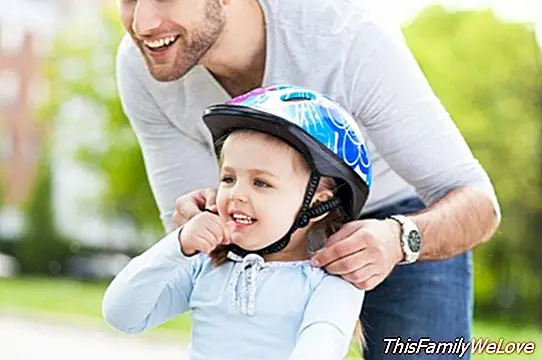5 tips to educate self-confident children

The self-confidence it is a fundamental force that contributes to personal well-being and success. Families are aware of the need to educate for the development of safety in children, but their attempts to achieve it are, in many cases, ineffective. Educate children safe in themselves, that is to say, that demonstrate security and confidence in themselves becomes a real challenge for parents, educators and schools.
And it is that finding the balance between the freedom that makes them safe and autonomous, and the protection that avoids them, is not an easy task.
Self-confidence
Self-confidence is confidence in one's own abilities, believing oneself capable of doing certain things, or at least trying. It is essential to develop self-confidence from childhood to achieve our goals and overcome our daily challenges.
The basis of a healthy self-esteem is self-confidence and contributes to satisfactory social relationships.
How self-confidence develops
Self-confidence it develops through experience. Nobody is born with high or low security in itself, but this is something that is built through the interpretations that we develop in the experience and above all, with how we feel in that experience. In other words, it is the experiences that provide an apprenticeship to the child, who interprets himself as capable or not capable of doing it and feels good or bad when doing it or not doing it.
Knowing how self-confidence develops will be a great help to help promote this in the little ones.
Guidelines for developing self-confidence in children
1. Let him see what you believe in him or her. To feel safe, first look at yourself through you, as in a mirror.
2. Be sure of yourself. If you show yourself to be a sure person of yourself, they will tend to imitate your attitude, without realizing it and will grow confident of themselves.
3. Do not transmit your fears. Sometimes we can be afraid that children will fail, that they will hurt themselves in the attempt. However, we must avoid transmitting that fear, which can make them not even try because they feel insecure. Instead we can transmit the following message: you may fail, but you must try and if you fail I will be here to support you.
4. Let them face challenges and that they reach their goals to prove to themselves that they are capable of doing so. It is about looking for goals that are challenging but accessible. If we propose impossible challenges they will be discouraged before time and if, on the contrary, we propose a too easy challenge, we do not develop their security.
5. Be careful with interpretations. Remember that self-confidence is related to the interpretations they make, so help them make more realistic and adjusted interpretations. To do this, ask them what they think about certain experiences, and help them think differently.
Celia Rodríguez Ruiz. Clinical health psychologist. Specialist in pedagogy and child and youth psychology. Director of Educayaprende.com. Author of the collection Stimulate Reading and Writing Processes.




